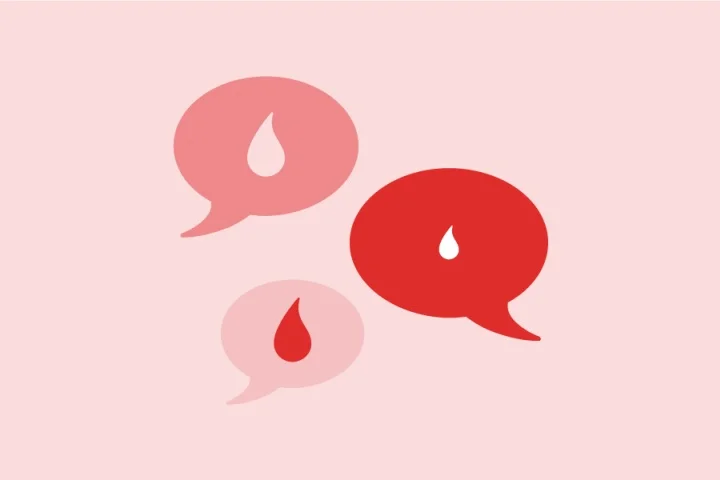Moving Away from Crime and Punishment in Maternal Health
By Katherine McCarthy
I recently attended a lecture as part of the Health Law Institute’s Seminar Series on the impact of the child welfare system on maternal health, and in particular some of the consequences which arise when criminal charges are laid against pregnant women for drug use, and their babies are then apprehended. The impact of the child welfare system on maternal health is an example of a current situation in which I would argue that the criminal law fails to meet its purpose, at a detriment to certain social groups and racialized minorities. The objective of the criminal law in Canada is to maintain a just, peaceful and safe society. It is premised on the idea that in order to achieve this goal, some acts must be deterred through punishment. I would suggest that the criminalization of pregnant women who use drugs goes against the law’s main objectives and that we, as a society, need to avoid paternalism that arises when the criminal law is used to prevent minority interests against the majority view. Maternal health is a prime example of why we as a society should focus our efforts on harm reduction strategies.
The Punishment Only Punishes
Canada has begun the shift from criminalization to a harm reduction approach when it comes to drug use during pregnancy (Kohut). Despite this shift, pregnant women who use drugs face highly stigmatizing perceptions from both health care providers and society which negatively impacts the quality of their care and supportive services (Expecting Better). There is still concern in the literature in terms of Canada’s excessive use of incarceration as a drug-control measure against women (Kohut). Meaghan Thumath discussed her doctoral research on the effects of child removal on marginalized women during the health law lecture. She suggested that the Canadian child welfare system is designed in a way that systematically disadvantages a specific group of mothers, those who use drugs. These women are those that need the most support, not discrimination.
The law does not exist in a vacuum, a point I find to be particularly apparent when discussing motherhood and drug use. The article Expecting Better states that “it is critical that pregnant women not face criminal charges, incarceration, and/or removal of their babies simply for the fact of drug use.” Not only does criminal punishment or child apprehension not deter drug use, it can cause negative impacts on both the mother and baby. There does not appear to be any evidence in the current literature to support that criminalization of pregnant women who use drugs helps to maintain a just, peaceful, and safe society. Although, it could be said that this law is in place to help protect children, and in some cases, this has proved to be true, this prohibition casts a wider net than is necessary. The process that Child Protection Services (CPS) undergoes to remove children from drug using mothers can be unjust and unnecessary. There does not seem to be a strong enough link between drug use and parental capacity to justify the separation of a mother and baby just hours after birth. The incarceration of pregnant women using drugs, and subsequently the increased number of babies and children entering child protection services (CPS), appears to lead to a never-ending cycle of individuals entering and leaving the system. This does not seem like the best possible outcome.
Child Apprehension, Discrimination and Vulnerability
There are multiple examples of economically disadvantaged and racialized women being treated poorly, and at times even unethically, in the healthcare setting. It is also not uncommon for these women to have had negative experiences with childbirth in the Canadian health care system. An article by Susan Boyd reviewed hair-testing practices carried out by Motherisk Drug Testing Laboratory (MDTL) at Toronto’s Hospital for Sick Kids. This practice was carried on from 2005 to 2015 and more than 16, 000 individuals were tested for drug consumption. The results were then admitted into court as evidence and resulted in both temporary and permanent loss of custody of children. These results were later found to be unreliable due to how they were handled and processed in the labs. The Motherisk tragedy is not the only example of state and gendered violence against low socioeconomic, Indigenous, and Black women in Canada. Canada also has a history of forced sterilization of Indigenous mothers upon giving birth in hospitals. Both of these situations have fostered a distrust of the healthcare system and healthcare professionals amongst those who have been negatively impacted. This can lead to avoidance of healthcare settings and the increase in negative health and social outcomes. This trend of discrimination in healthcare must be reversed. From my point of view the current criminal law only adds to this discrimination. Looking at the discrimination from the perspective of the current criminal law only adds to prejudice seen in maternal health.
An Answer in Harm Reduction Strategies
These two examples of discrimination in healthcare stem from lack of appreciation of the wider social context in policy and decision making. In theory, the law is intended to apply to all equally, but when put into practice this is simply not the case. The rationality of law and its need to categorize can be a disadvantage. There should be more of a consideration of the context in which the law is enacted. Social, cultural, and political aspects of society make a difference in shaping the law. Although there can be valid and important reasons for the criminalization of drug use, when the added element of pregnancy comes into play, more consideration needs to be taken into account. Harm reduction approaches in drug use and pregnancy could be a much more effective measure in combatting public health harms than using criminalization, which potentially creates more harm than good.
The criminal law can be effective, but it cannot achieve everything. There are times when criminal law should be substituted for better and more modern strategies, such as harm reduction, in order to keep with today’s societal values. Maternal health is one such area that would benefit from more widely accepted harm reduction approaches. Society would benefit from a shift in law and policy to avoid disproportional discrimination of poor and racialized minorities in the healthcare setting.





